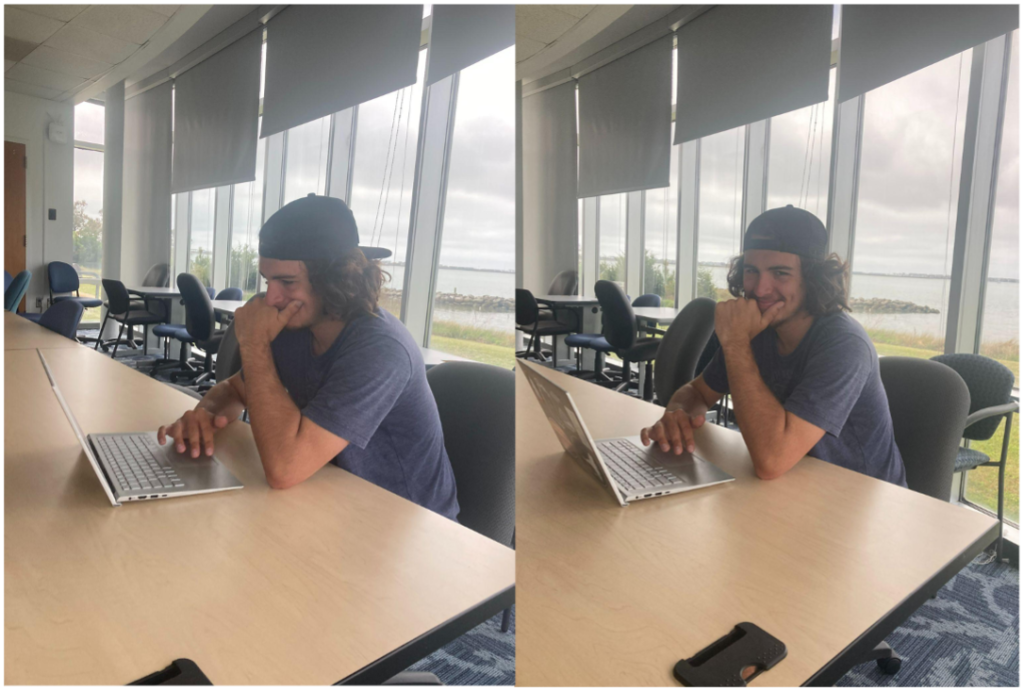Sean Sullivan: A Research Internship in Fisheries Management
If I learned nothing else from my internship, I learned how little fisheries management has to do with fish. That might sound counterintuitive, but it is to an extent true. When it comes to marine fisheries management most of the management is done for people’s actions and attitudes because that dictates the health of most fisheries.
My internship for spring semester was at NC State CMAST working with Dr. Louis Daniel reviewing research and current policies to examine the possible effects of certain management strategies on important NC saltwater fishes. I didn’t work with any specific department. I was working more with the guidance of a fisheries management professional on an independent project. Specifically using past research to support the idea that slot limits would be an effective management tool for more fishes in North Carolina. The science behind it is rather simple, a slot limit protects large and small fish while leaving a “slot” size open to harvest. This allows fish to have a large biomass of successful spawners while keeping the fishery open to harvest. What I spent my semester realizing however was that regardless of how simple something sounds, the difficulty of managing natural resources, especially popular fisheries, is in a sense man-made. Most management decisions in regard to fisheries will receive scrutiny due to the fact that they regulate resources most people want to have less limited access to. The main source of mortality for most marine fishes is fishing efforts both commercial and recreational. Because of this when you are trying to manage a population to be as healthy as possible, the main challenge to this is directed human interactions. Due to this, management decisions have to be able to keep fish populations healthy while also allowing as much of a fishery as possible to exist, otherwise you run into problems with resistance, dissatisfaction, and noncompliance. Even if a management strategy limiting fishing effects in a certain way would be extremely beneficial, many people are bound to disagree with it if they feel it restricts their ability to utilize the resource.
Although this research isn’t officially part of a larger project the work and the arguments provided in favor of certain management strategies can be used to show sentiment towards proper management, and to educate about more conservation minded fisheries management. As of now however there are no next steps for this project and the research I’ve done will remain as a statement to detail potential changes we could make to better our management of NC marine fisheries.

Throughout my project I realized this more and more as I researched past management decisions, population trends, and what would need to be done to help certain fishes in the future. The overall goal of this project was essentially to craft a paper in support of new size limits for certain fishes that could be used in the scope of fisheries management in North Carolina. Almost all of what I did was search through stock assessments, fisheries management plans, and catch data to show the decline and reduced production in our fisheries. That backs up the argument that slot limits would certainly help certain NC fishes recover. Some fishes certainly need slot limits more than others but what I found is that slot limits would be beneficial for most of the recreationally and commercially important fishes I reviewed on our coast. The next part of the project for me was forming arguments that while slot limits may restrict ability to take in the short term the benefits, they provide will create better fishing conditions and bring more money through coastal NC.
As part of this experience, I was fortunate enough to interview some other professionals in the field including the current deputy director of the North Carolina Division of Marine Fisheries. That presented an interesting situation as the DMF has not historically managed our fisheries to be sustainable. Going into this meeting was a little bit daunting as I was hoping to get the states perspective on marine fisheries management after I had already reviewed the data they operate with and formed my own inferences. I was a little worried there might be some conflict involved but I was able to get some valuable information on what goes on behind the scenes at the state level for management.
I must admit at the start of this project I was a little disappointed at the fact that there would be no field work involved but I quickly became engaged with the research and the hopeful outcome. The work was interesting, and it is helpful to see the background of what goes into management decisions. Fisheries conservation is my passion so working on a project like this where the purpose is to impact attitudes and decisions to responsible management was a very interesting experience for me, and certainly not something I would turn down in the future. As for my future career, this experience has been invaluable to my planning process. Although it was an enjoyable and interesting experience, I think that for my own career I plan to stay out of the management side and stick more with the research and scientific discovery side of fisheries. The nature of working in fisheries management, and the factors that go into it deal less with the natural side fisheries and more with the human component. As of now I plan to pursue the natural science aspects of the field and to involve myself less with management in the long term.
- Categories: